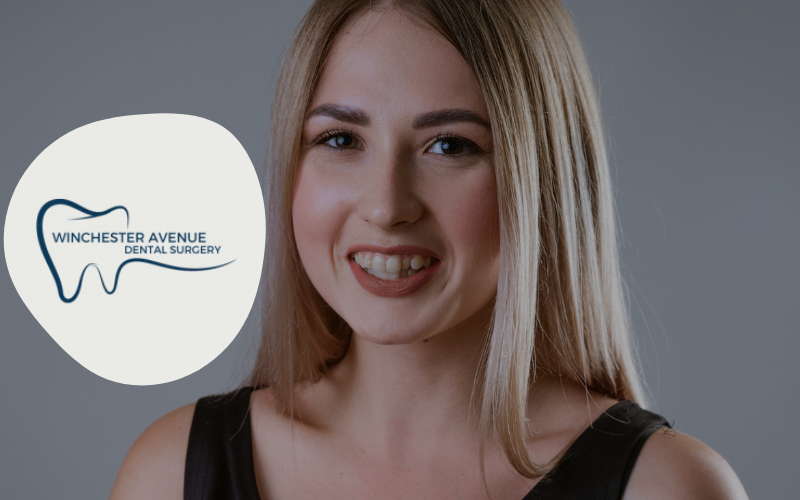Straightening Your Smile: Understanding Braces and Veneers for Crooked Teeth
Having crooked teeth can affect more than just your appearance; it can also impact your overall oral health.
Correcting your teeth alignment not only boosts your confidence but also promotes better dental hygiene. In this comprehensive guide, we'll explore two prevalent methods for correcting crooked teeth: braces and veneers.
Our aim is to provide you with clear, understandable insights so you can make an informed decision about the best solution for your situation.
Why Correct Crooked Teeth?
Crooked teeth can lead to several dental health issues, which is why correcting them is crucial beyond aesthetic improvement:
- Hygiene: Crooked or overlapping teeth can trap food particles more easily and are harder to clean. This can increase your risk of plaque build-up, tooth decay, and gum disease.
- Wear and Tear: Misaligned teeth can cause uneven wear on your teeth's surfaces. Over time, this can lead to difficulties in chewing, jaw pain, and even more serious conditions like temporomandibular joint disorder (TMJ).
- Self-Esteem: Many people feel self-conscious about their smiles if their teeth are crooked, which can affect personal and professional interactions.

Braces for Crooked Teeth
Braces are one of the most traditional and effective methods for correcting misaligned teeth. Here's a detailed look at what braces involve:
What are braces?
Braces are devices used in orthodontics that align and straighten teeth by applying continuous pressure over a period of time. They are typically recommended for more significant alignment issues, such as overcrowding, gaps, overbites, underbites, and crossbites.
Types of Braces:
- Metal Braces: These are made of high-grade stainless steel, and thanks to modern advancements, they are now smaller and more comfortable than ever.
- Ceramic Braces: Composed of composite materials, they are less visible than metal braces because they blend with the teeth. They are popular among older teenagers and adult patients who might be conscious about the aesthetics of braces.
- Lingual Braces: These are attached to the back of the teeth, making them invisible when you smile. They are custom-made to match the shape of your teeth, which makes them more expensive than traditional front-facing braces.
- Clear Aligners: These are increasingly popular and consist of a series of tight-fitting, custom-made mouthpieces that slip over the teeth. Clear aligners are virtually invisible and can be removed for eating, brushing, and flossing.
Veneers for Crooked Teeth
Veneers offer a cosmetic solution to crooked teeth and can transform your smile quickly. Here's what you need to know about veneers:
What are veneers?
Veneers are thin covers that attach to the front surface of your teeth. They are made from porcelain or composite resin and are custom-made to fit your natural teeth. Veneers can change the colour, shape, size, or length of teeth.
Can you get veneers with crooked teeth?
Veneers are suitable for individuals with minor misalignments who desire a more uniform smile. They can mask minor gaps, enhance the appearance of misalignment, and offer a substantial aesthetic improvement. However, they are not suitable for correcting severe misalignments that affect oral health.
Choosing Between Braces and Veneers
When deciding between braces and veneers, consider the following factors:
- Severity of Misalignment: Braces are the preferred option for severe misalignments, as they can structurally correct the position of your teeth. Veneers are better suited for cosmetic improvements and minor corrections.
- Treatment Duration: Braces generally require a longer treatment period—from several months to a few years—depending on the complexity of the case. Veneers can be completed in as few as two to three dental visits over a few weeks.
- Cost Implications: While the initial cost of veneers might be higher, they require less maintenance. Braces can be more cost-effective for extensive corrections but include ongoing adjustments and maintenance.
Conclusion
Choosing the right treatment for crooked teeth is a decision that can significantly impact not just your smile, but your overall dental health. Braces and veneers both offer viable solutions, but they serve different needs and preferences. Braces are ideal for addressing structural issues and correcting severe misalignments, ensuring long-term health benefits. On the other hand, veneers are best suited for those seeking a quick cosmetic fix for minor misalignments and aesthetic concerns.
It's essential to maintain diligent oral hygiene and regular dental check-ups regardless of the treatment option you choose. This ensures the longevity and effectiveness of your treatment. Always consult with a dental professional who can provide personalized advice based on a thorough assessment of your dental needs. By understanding your options and the care required for each, you can achieve a healthier, more confident smile that lasts a lifetime.
Frequently asked questions - crooked teeth
How do I know if I need braces or veneers?
The best way to determine the right treatment for crooked teeth is to consult with our dentist. We can assess your specific situation and recommend the most effective treatment.
Are there any risks with using braces or veneers for crooked teeth?
Like any medical treatment, both options come with risks. Braces can lead to discomfort and increased plaque build-up if not cleaned properly. Veneers might chip or break and typically require replacement every 10 to 15 years.
How long does each treatment take to fix crooked teeth?
The duration of braces can vary from a few months to several years, depending on the severity of misalignment. Veneers usually require two to three visits over a few weeks.
Can veneers be used on very crooked teeth?
Veneers are best suited for mildly to moderately crooked teeth. Very crooked teeth might require orthodontic treatments like braces.
What maintenance is required for braces and veneers?
Braces require regular cleaning around the brackets and wires, as well as periodic adjustments by your dentist. Veneers require good oral hygiene and avoidance of biting hard objects to prevent chipping.
